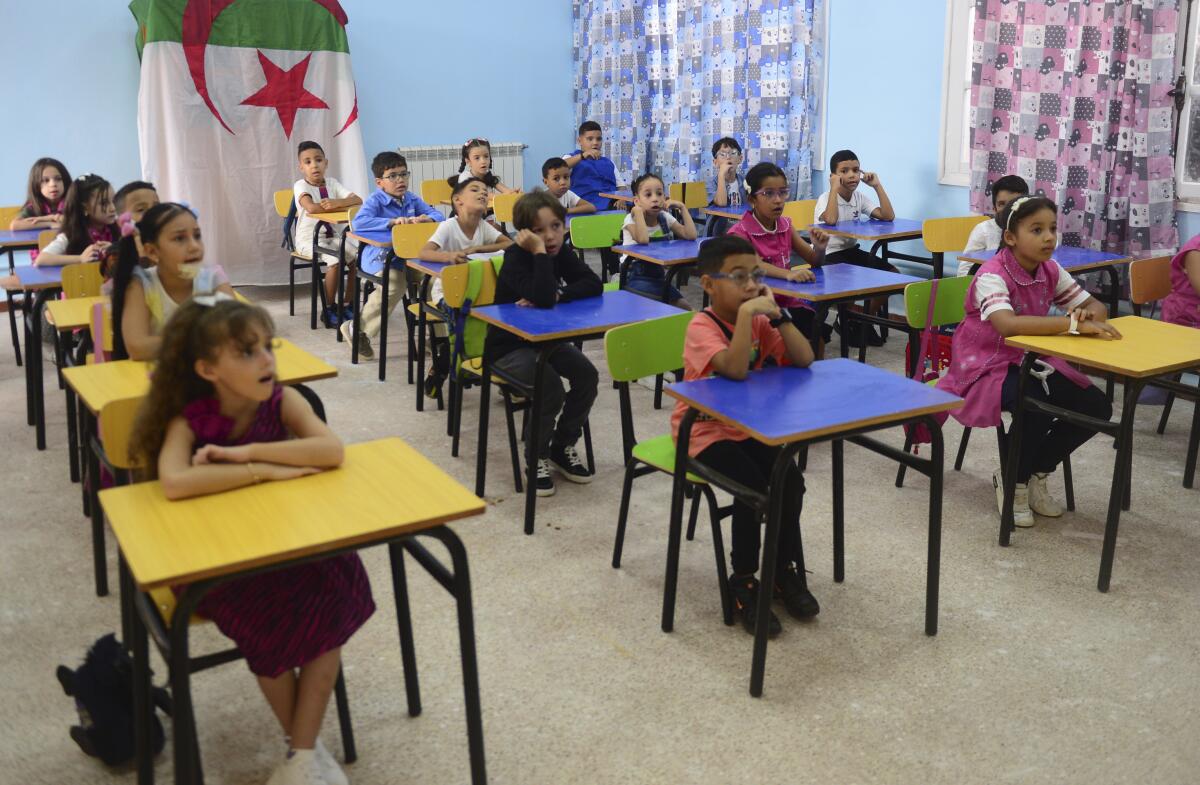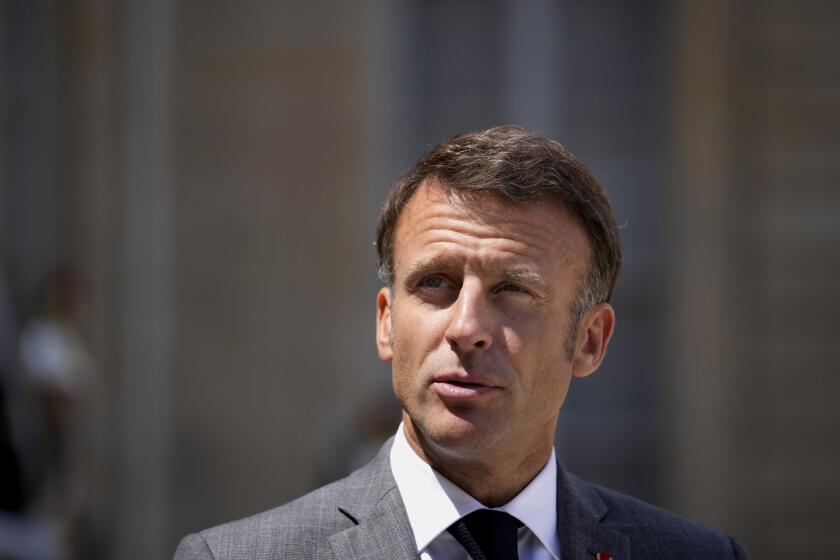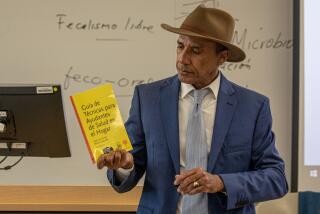As France’s influence in Africa ebbs, Algeria expands English-language learning

- Share via
ALGIERS — More than a year after Algeria launched a pilot program to teach English in elementary schools, the country is hailing it as a success and expanding it in a move that reflects a widening linguistic shift underway in former French colonies throughout Africa.
Students returning to third- and fourth-grade classrooms this fall will participate in two 45-minute English classes each week as the country creates new teacher-training programs at universities and eyes more transformational changes in the years ahead. Additionally, the country is strengthening enforcement of a preexisting law against private schools that operate primarily in French.
“Teaching English is a strategic choice in the country’s new education policy,” Education Minister Abdelkrim Belabed said recently, lauding the move as an immense success.
English is the world’s most widely spoken language, accounts for the majority of content on the internet and remains a lingua franca in business and science. And as France’s economic and political influence wanes throughout Africa, Algeria is among a longer list of countries gradually transitioning toward English as their main foreign language.
This year, neighboring Mali changed its constitution to remove French from its list of official languages, and Morocco made English classes compulsory in high schools.
Algeria has more French speakers than all but two nations: France and the Democratic Republic of the Congo. Nearly 15 million of the country’s 44 million people speak it, according to the International Organization of the French Language. Algerian officials frame English classes as a practical rather than political shift, noting the language’s importance in scientific and technical fields.
France will end its military presence in Niger and withdraw its ambassador now that the democratically elected president has been deposed in a coup.
But questions about French’s place in Algerian society have long been polarizing, as teachers and former education policy officials acknowledge.
Retired high school principal Mohamed Arezki Ferdi believes Algeria should have begun the shift to English decades ago. The current initiative was launched by Algerian President Abdelmadjid Tebboune, who came to power in 2019. Previous leaders also tried to expand English but failed to overcome the French-educated elites who have long wielded power.
“We lost a lot of time,” Ferdi said. “We should have introduced the English in primary schools when President [Abdelaziz] Bouteflika laid out his reform after coming to power in 1991. But at that time, French-speaking factions in Algeria had a lot of decision-making power in institutions.”
The expansion of English language learning comes as tensions increasingly flare between France and Algeria. The two share security interests over the political upheavals shaping contemporary West Africa. However, in recent years they have sparred repeatedly over immigration, extradition and how each country memorializes colonialism and the brutal war that resulted in Algeria’s independence in 1962.
African Climate Summit: Leaders want a louder voice on climate change, which affects the continent’s 1.3 billion people who contribute to it the least.
Algeria plans to expand its current program to fifth grade next year. It will continue to instruct students in French for three hours each week in elementary schools.
When English-language learning was introduced last year, Algerian officials reaffirmed their commitment to French and said it would continue to be taught widely. But in remarks this week at the beginning of the school year, Kamal Bedari, Algeria’s minister of higher education, said expanding the program was to enable elementary school students to take technical courses later on in English — not French.
Though few dispute that English is important, some worry about how Algeria is implementing such a shift and caution against declaring victory too soon. Ahmed Tessa, a former advisor to Algeria’s Ministry of Education, believes getting students to master English can happen only gradually and will likely require more than simply adding classes.
“We need to get back to basics,” he said. “This is no small task.”
Breaking News
Get breaking news, investigations, analysis and more signature journalism from the Los Angeles Times in your inbox.
You may occasionally receive promotional content from the Los Angeles Times.
Regardless of how quickly schools transition to English, signs of a pushback against French are clear elsewhere.
Authorities have slowly replaced French with English in the official titles of various government ministries. And on his trip last year to Algiers, the country had French President Emmanuel Macron provide remarks from a lectern noting his title and the date in English and Arabic, one of Algeria’s two official languages along with Indigenous Tamazight.
More to Read
Sign up for Essential California
The most important California stories and recommendations in your inbox every morning.
You may occasionally receive promotional content from the Los Angeles Times.














